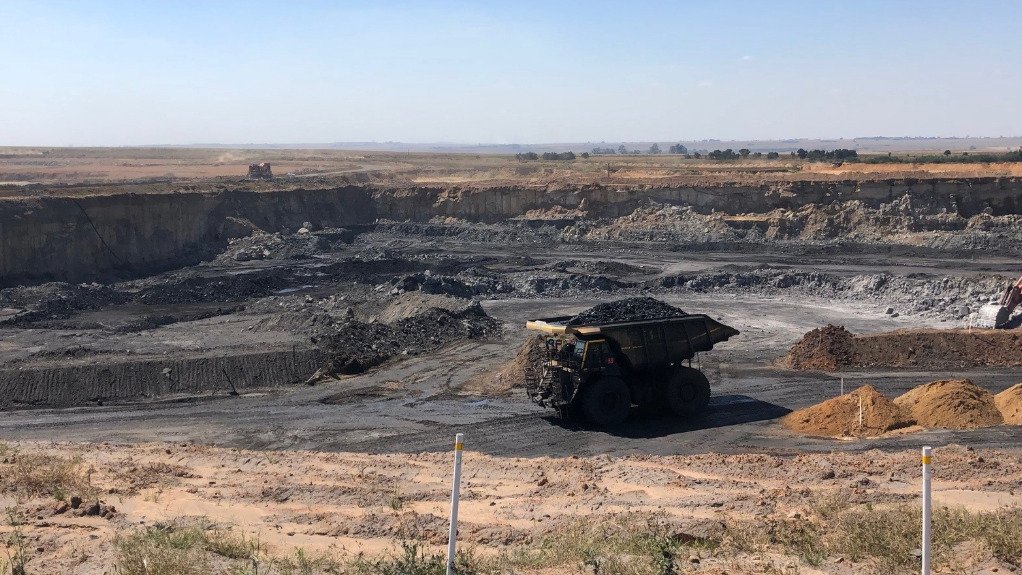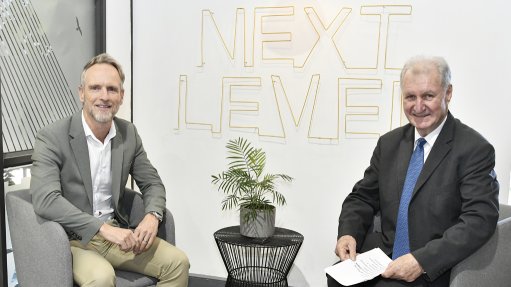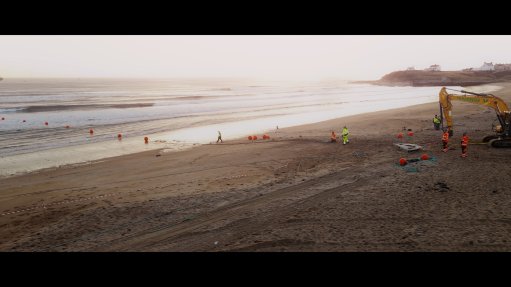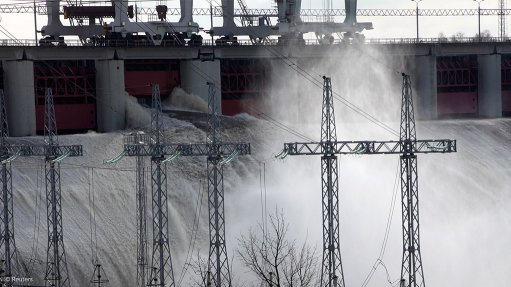Energy transition requires pragmatic approach


COAL CONSIDERATIONS Abated coal use should form part of a balanced energy mix alongside renewables
While the global transition to a low-carbon economy remains crucial, the pace of the transition must be pragmatic to balance energy affordability, security and development, says nonprofit coal advocacy organisation FFF Carbon executive committee chairperson Professor Nicola Wagner.
Despite some slowing down, South Africa many major coal mines are still in operation to feed export and domestic demand, including the country’s existing coal-fired baseload power plants and other local industries.
It should be noted that many of the larger coal mining companies have developed and implemented extensive environmental stewardship plans, renewable-energy strategies and carbon offsetting endeavours to improve their environmental, social and governance standings.
In this vein, Wagner explains that there are many projects underway along South Africa’s coal value chain, with one such project being engineering firm EPCM Global Engineering’s gas emissions capturing pilot project demonstrated at Kelvin Power Station, earlier this year.
The project is part of the Department of Science, Technology and Innovation (DSTI) CoalCO2-X initiative, in collaboration with private and international partners such as German development agency GIZ. The project aims to reduce emissions from the coal-fired power plant and convert the captured pollutants into valuable industrial products.
The system is capable of processing 300 m3 of flue gas an hour, converting emissions into products such as ammonium bicarbonate, sulphuric acid, and ammonium sulfate, with potential applications in the fertilizer and other industries. At the demonstration, sulphur oxides levels were brought to zero ppm while CO2 levels were reduced by about 26% from baseline concentrations.
Another key project is the carbon dioxide storage (CCS) project, led by the South African Council for Geoscience, with World Bank funding support as well as substantial government-private support in South Africa.
A CO2 storage site was identified in Leandra, Mpumalanga, close to the emission sources in the Witbank Coalfield. The project is moving towards drilling and piloting storage potential.
Wagner asserts that CCS and carbon capture, use and storage (CCUS) projects assist in the longer-term energy transition phase and will alleviate some socioeconomic impact in the province, if successful.
Global Trends
Globally, Wagner observes a growing consensus that coal mining and consumption cannot be eliminated immediately, as evidenced by rising energy costs and concerns around energy security in countries such as the UK and Germany.
She says South Africa must learn from global experiences, such as the challenges and costs Germany has encountered in transitioning to renewable energy.
Therefore, Wagner advocates abated coal remaining part of a balanced energy mix alongside renewables, nuclear and emerging technologies such as hydrogen, noting a renewed willingness to discuss coal’s role with conversations that focus on integrating coal with other forms of energy, such as biomass and renewables.
Amidst evolving discussions on coal’s role in such a balanced energy mix, and given South Africa’s heavy reliance on coal-fired energy generation, Wagner explains that global climate goals must be weighed against the realities of South Africa’s development needs in the current constrained socioeconomic environment, and the challenges faced by other nations in transitioning to renewable energy.
She emphasises the need for a pragmatic and balanced approach that prioritises energy security, socioeconomic stability and environmental compliance and sustainability.
The global energy transition must balance current needs with future sustainability which requires skilled personnel, innovation and robust planning to achieve stable and affordable energy for an expanding population.
She stresses that phasing out coal will be gradual, with realistic timelines to reskill and retrain the workforce, which might not occur in this generation owing to the low-skills nature of many coal industry roles.
Wagner points out that while South Africa has significant potential for renewable energy, such as solar power, the footprint of solar installations required to match coal-fired power stations’ output is substantial. Therefore, she cautions against overestimating renewable energy’s capacity to rapidly replace coal.
“[On a plant footprint basis] renewables can’t produce anywhere near the same amount of power that a coal-fired power station can produce nor can solar always produce power when required,” she says.
While acknowledging the environmental damage caused by coal, including acid mine drainage, particulate and CO2 emissions, she notes that the long-term impacts of renewables, such as waste generation and the need for extensive mining of raw materials, are not fully understood by some decision-makers and civil society.
The renewable-energy transition requires significant mining for raw materials, which is an energy-intensive and environmentally demanding process, Wagner explains, adding that technologies such as solar panels and wind turbines have limited lifespans of ten to 20 years currently, requiring periodic replacement.
This increases resource demand but also underscores the sector’s current reliance on fossil fuels for mining, manufacturing and construction, reinforcing coal’s role in the energy transition in the near term.
Reaching a Consensus
Amid differing opinions regarding coal’s role in the energy transition, Wagner notes that South Africa faces internal policy conflicts, with some government departments supporting coal while others strongly oppose it.
She explains that some government departments, such as Water and Sanitation, and Forestry, Fisheries and the Environment, delay or refuse to process coal-related mining and environmental authorisation permits, creating inconsistencies in the country’s energy strategy while the Department of Mineral Resources and Petroleum is pro-coal.
“One government department understands the need to continue with our coal industry, bearing in mind that we must significantly improve our coal industry, and the other government department essentially says we’re not going to discuss it,” she elaborates.
Going forward though, Wagner emphasises the importance of reaching a consensus through fact-based advocacy for the coal industry in South Africa, especially given the struggles of developed nations, such as Germany, to meet their renewable-energy targets despite substantial investments therein.
Global Lessons
Wagner argues that coal has historically been a foundation for development in many industrialised nations, providing affordable energy that fueled economic growth.
Therefore, the transition away from coal in developed nations cannot overshadow the immediate needs of countries still striving for basic economic stability, emphasising that coal, as a reliable base-load energy source, should be viewed as a means of development.
She contrasts this with countries such as India and China, which continue to use coal while simultaneously developing renewable-energy and nuclear technologies with India currently being the largest importer of South African coal.
While coal is often vilified in global climate discussions, she argues that Africa’s development needs and sovereignty must also be considered.
Meanwhile, she also expresses frustration at South Africa’s broadscale failure to use available technologies to reduce particulate matter emissions from coal-fired power stations, which perpetuates a negative image of coal.
Wagner calls for immediate action to clean up the coal value chain and reduce its environmental footprint, ensuring a smoother transition to alternative energy sources in the future.
Aligned to such efforts, she highlights the role of clean coal technologies and CCUS in reducing environmental harm during the transition to a low-carbon economy.
High efficiency low emission technologies are widely implemented in China, where these technologies significantly improve power station efficiency and lower emissions for every tonne of coal burned.
However, global investment reluctance has hampered the broader adoption of CCUS and other clean coal technologies. Therefore, she urges for greater funding and support towards clean coal technologies to be developed and rolled out in a similar manner to the financial backing provided for renewable energy.
“The ability to fund clean coal technology projects, and implement them outside of China, has been a huge constraint, considering the amount of money that’s put into the renewable-energy industry,” says Wagner, adding that bated coal should be viewed as additional power in a diversified energy mix as opposed to power replaced by renewable energy.
Article Enquiry
Email Article
Save Article
Feedback
To advertise email advertising@creamermedia.co.za or click here
Comments
Announcements
What's On
Subscribe to improve your user experience...
Option 1 (equivalent of R125 a month):
Receive a weekly copy of Creamer Media's Engineering News & Mining Weekly magazine
(print copy for those in South Africa and e-magazine for those outside of South Africa)
Receive daily email newsletters
Access to full search results
Access archive of magazine back copies
Access to Projects in Progress
Access to ONE Research Report of your choice in PDF format
Option 2 (equivalent of R375 a month):
All benefits from Option 1
PLUS
Access to Creamer Media's Research Channel Africa for ALL Research Reports, in PDF format, on various industrial and mining sectors
including Electricity; Water; Energy Transition; Hydrogen; Roads, Rail and Ports; Coal; Gold; Platinum; Battery Metals; etc.
Already a subscriber?
Forgotten your password?
Receive weekly copy of Creamer Media's Engineering News & Mining Weekly magazine (print copy for those in South Africa and e-magazine for those outside of South Africa)
➕
Recieve daily email newsletters
➕
Access to full search results
➕
Access archive of magazine back copies
➕
Access to Projects in Progress
➕
Access to ONE Research Report of your choice in PDF format
RESEARCH CHANNEL AFRICA
R4500 (equivalent of R375 a month)
SUBSCRIBEAll benefits from Option 1
➕
Access to Creamer Media's Research Channel Africa for ALL Research Reports on various industrial and mining sectors, in PDF format, including on:
Electricity
➕
Water
➕
Energy Transition
➕
Hydrogen
➕
Roads, Rail and Ports
➕
Coal
➕
Gold
➕
Platinum
➕
Battery Metals
➕
etc.
Receive all benefits from Option 1 or Option 2 delivered to numerous people at your company
➕
Multiple User names and Passwords for simultaneous log-ins
➕
Intranet integration access to all in your organisation



















